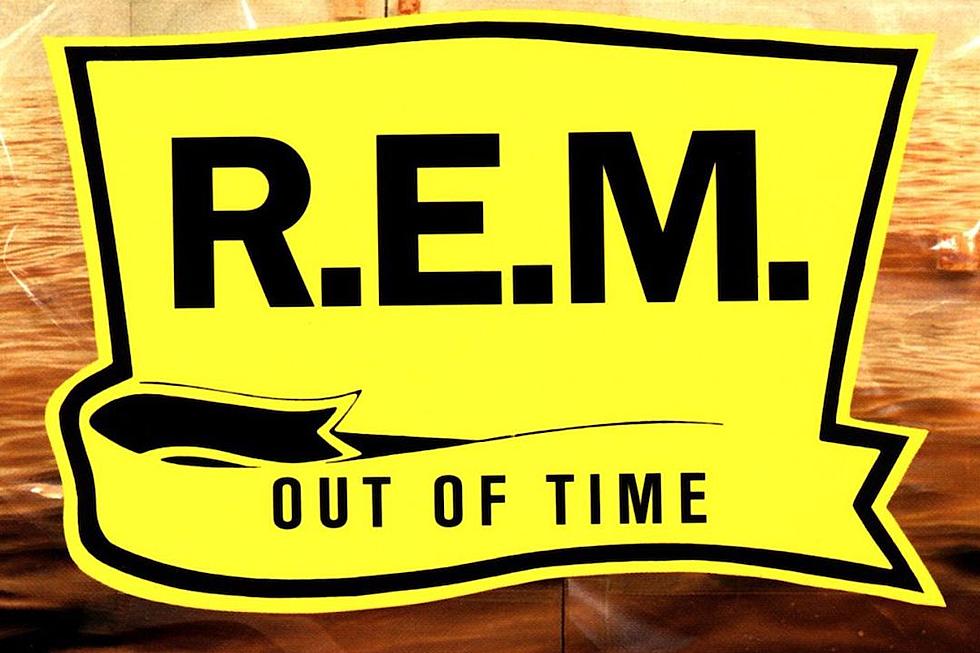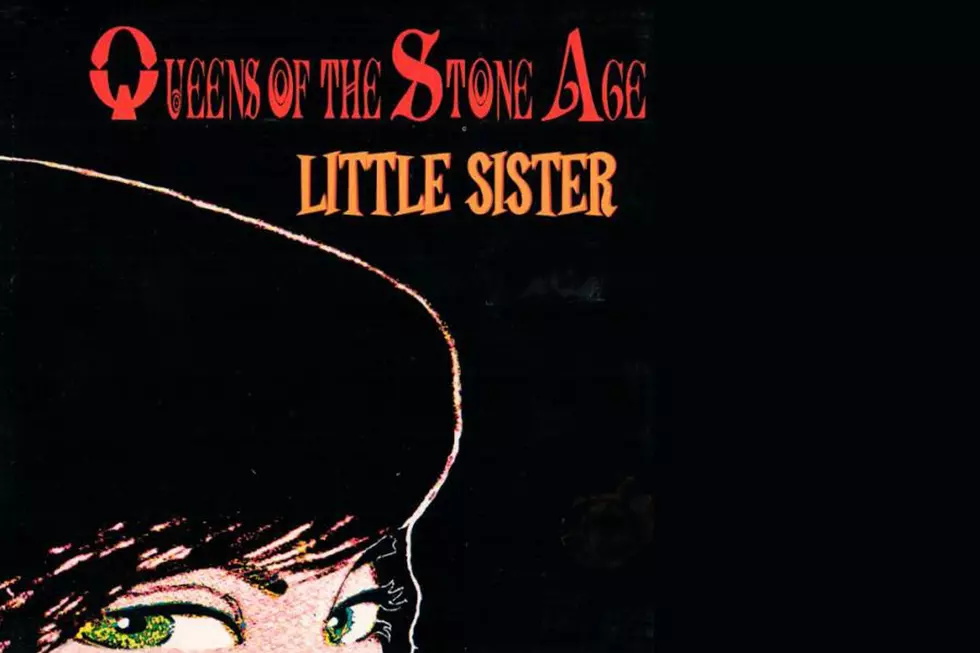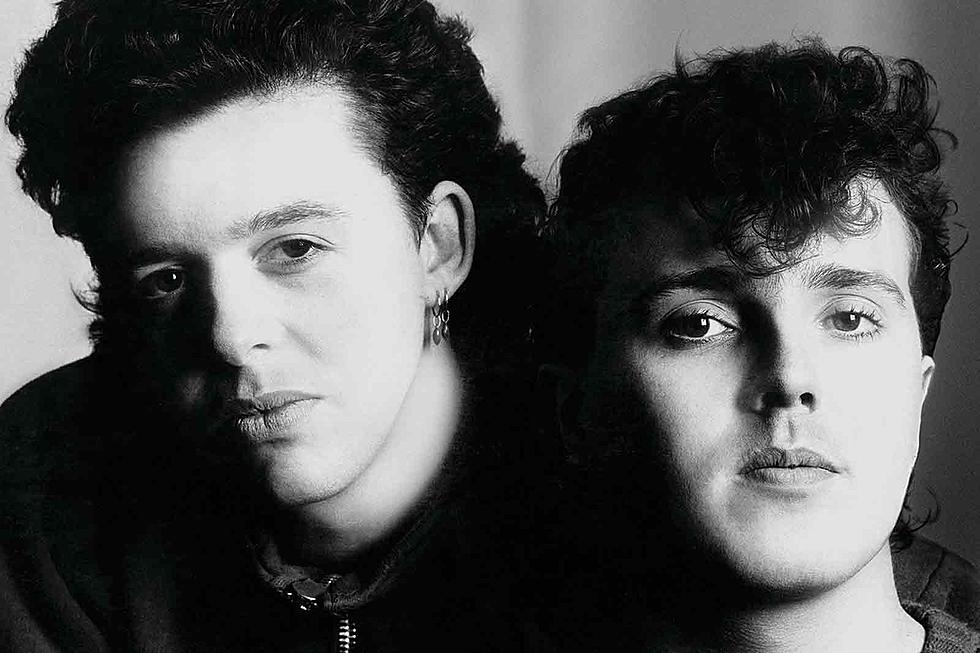
30 Years Ago: George Michael Goes Solo on ‘Faith’
It's not like Wham! were ever really a collaborative group. But when George Michael split from his musical partner, Andrew Ridgeley, in 1986, to launch a solo career in earnest, his name was finally out there without the baggage that came from being one-half of the era's biggest pop groups.
In 1984, right in the middle of Wham!'s ascension up the charts, Michael had released "Careless Whisper" under his own name, even though the song was included on the duo's second album, Make It Big. The ballad became their second No. 1, following the breakthrough "Wake Me Up Before You Go-Go."
Then, in 1986, after they had announced their breakup, Wham!'s third and final album, Music From the Edge of Heaven, came out and included another Top 10 Michael solo single, "A Different Corner." By the middle of next year, Wham!-free, Michael released "I Want Your Sex," which rocketed to No. 2, from his upcoming debut solo album.
On Oct. 30, 1987, Faith came out, went straight to No. 1, stayed there for 12 weeks and shot out six more singles, four of which reached No. 1. By the end of the year, Michael was one of the biggest stars on the planet.
The path there wasn't always easy. For starters, Michael had to cast off the reputation that dogged him since Wham!'s early days that he was no more than a teen idol whose talent didn't go any deeper than his good looks. He had pushed for more serious music in the group, and had succeeded to a point. But "Wake Me Up Before You Go-Go" was a mighty big shadow hanging over him.
Watch George Michael's 'I Want Your Sex' Video
So, for the public's first taste of Michael as a full-time solo artist, the 23-year-old British singer, songwriter and producer unveiled "I Want Your Sex," a two-part (actually, three-part; the song's third section was released on CD and cassette only) funk workout about hot, sweaty lust that he had written, produced and performed all by himself. It was a long way from the squeaky-clean jitterbug and Doris Day references found on "Wake Me Up Before You Go-Go" and set the template not only for Faith but for Michael's solo career.
It was also controversial -- a fact that both helped and hindered its chart position. The song stopped just shy of the No. 1 spot after it was released as a single in June. Most of Faith's other songs that were pulled for radio play didn't run into any barriers: the title track, "Father Figure," "One More Try" and "Monkey" all went straight to No. 1, and each spent at least two weeks at the top of the chart ("Faith" spent four weeks there).
And if nothing was as jaw-dropping as "I Want Your Sex" as far as Michael's old pop fans were concerned, Faith was loaded with a musical sophistication that was merely hinted at in Wham!'s best work. The opening title track (which started with a massive organ riffing on the Wham! hit "Freedom") was built on an old-school Bo Diddley shuffle; the closing "Kissing a Fool" was a spare jazz-like number. In between was enough pop, soul, ballads, funk, rock 'n' roll and R&B to sate even the most finicky popular music fan. It was such a wide-ranging hit that it even went to No. 1 on the Top R&B Albums chart -- a first for a white artist.
Michael opened up like he never could in Wham! Even though he never explicitly came out as gay on Faith, he hinted at it in several songs. He sang in deeper tones than he did in the past. He was way more ambitious, stripping down some songs while expanding others ("I Want Your Sex"'s first two parts clock in at more than nine minutes). And he wasn't afraid to show off his influences more prominently than he did in the past.
It was a perfect melding of pop music and star power. Faith racked up awards in the months after its release, including Grammy's Album of the Year in 1989, and Michael snagging the distinction of being the first artist since Simon & Garfunkel to have both the year's No. 1 album and No. 1 single.
More importantly, the album signaled a new direction for pop music as it headed into the '90s. Faith was smarter, more sweeping and braver than most of the other records topping the charts at the time (even Michael Jackson's Bad, its closest ancestor, sounds somewhat stifled compared to Faith). It took Michael three years to follow it up with Listen Without Prejudice Vol. 1, a more complex turn on the same subjects. By then, many fans had moved on -- maybe cursing Michael to the fleeting pop stardom he tried so hard to escape in the '80s. No matter, by that point Faith had more than sealed its placement as one of the best and most enduring albums of the era.
How 50 of Alternative Rock's Biggest Bands Got Their Names
More From Diffuser.fm









